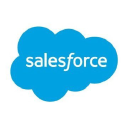AcademicInfluence.com Pioneers A New Way To Compare Colleges And Scholars
Hello! Who are you and what business did you start?
Hi, I’m Prof. Jed Macosko, and I have the privilege of telling the story of how AcademicInfluence.com got started. I serve as president and academic director under the capable leadership of our CEO, Wayne Downs, and alongside an incredible team that includes Prof. Robert Marks, Drs. Winston Ewert, Brian Carlson, and James Barham, and Dave Tomar, Jenn Finley, and Dan Edelen. Our website helps parents and students find colleges that are a good fit. But more importantly, we strive to connect learners to leaders, which is why a large portion of our site is devoted to highlighting the works and lives of influential people.
How do we know who is an influential person? Thanks to the work of Dr. Ewert, we have developed an algorithm that measures how often a person’s work or life is mentioned in various databases. Primarily, we look at Wikidata, the text associated with Wikipedia, and the abstracts, titles, references, keywords in publications found at Crossref.org. As an example of finding influential people, here is the hero image of a recent press release we did about women engineers, which was also picked up for an article at Forbes.com:












